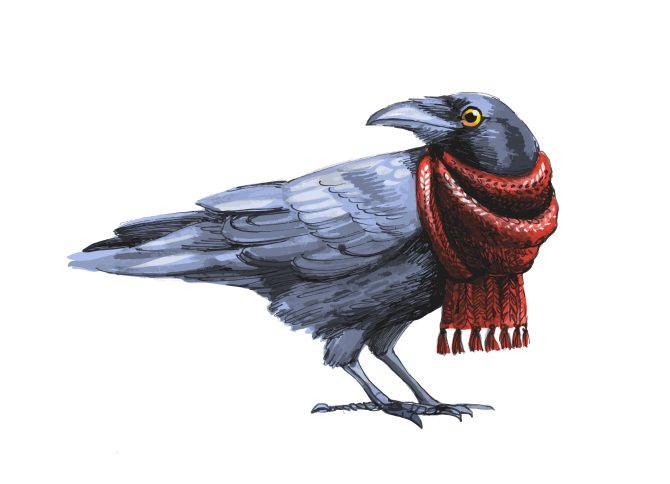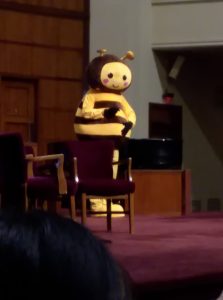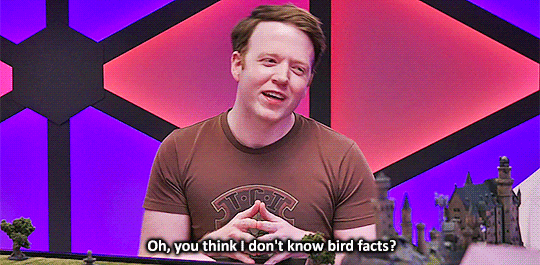
If you’ve ever taken an English class or if you’re a sad poetry lesbian (this is a very weird venn diagram that is one small circle entirely engulfed by a much larger circle), you’re at least passingly familiar with the works of Emily Dickinson. Dickinson was a reclusive and prolific poet who penned these now-famous words:
“Hope” is the thing with feathers -
That perches in the soul -
And sings the tune without the words -
And never stops - at all -
And sweetest - in the Gale - is heard -
And sore must be the storm -
That could abash the little Bird
That kept so many warm -
I’ve heard it in the chillest land -
And on the strangest Sea -
Yet - never - in Extremity,
It asked a crumb - of me.
This poem has stuck with me as well as millions of other people for a myriad of reasons. As this isn’t an English class, nor really the point of the blog post, I’ll try not to wax too…poetic(?) about this poem. I am a sentimental overthinker who doesn’t have many poems memorized so I think about this poem a lot. For the record, the other poems in my memorized repertoire are The Jabberwocky by Lewis Carrol, bits and pieces of Sick by Shel Silverstein, and about the first third of The Raven by Edgar Allen Poe. I tried to memorize The Raven in high school as part of a weird party trick and then realized it was REALLY damn long. There are two takeaways from this, the first being that I should probably read more poetry. The second takeaway is the power of Dickinson’s very simple poem and maybe a little something about birds. Dickinson personifies “Hope” as a bird, moving gently and lightly through the world. Even though Hope appears fragile, it's a hearty bird that is just as comfortable singing outside your window as it is weathering and surviving physical and emotional storms.
I think that most people on hearing this poem would think about a small, beautiful bird. We’d rather picture a Northern cardinal or Tufted titmouse than we would–say a Northern shrike. I don’t think the poem would have the same light and airy whimsy to it if Hope’s avatar was dropping small prey on barbed wire. I think the shrike would have a killer place in metal music, though.
To pivot away from bird facts and get to the point, I don’t think it is too controversial a statement to say that we live in a day and age where we are distrustful of other people and lack hope. I’ve personally had a difficult time with my own hope in the last few years. Sometimes, the books I read bring me home. Sometimes, those books are even bird-centric!
In contrast to the small songbirds most people might imagine when thinking of the Dickinson poem, my hope was somewhat renewed in the science fiction I read. If I were to re-write my own Dickinsonian poem based on my reading, it might go a little like this:
“Hope is a crow named Shit Turd-
That perches near Big Jim-
And sings the tune about Cheetos®-
And never stops - at all -”
Welcome, my dear friends, to the world of Hollow Kingdom. Hollow Kingdom is a 2019 science-fiction novel by Kira Jane Buxton. It also might be one of my favorite books ever. If you couldn’t tell by my ~lovely poem~, Hollow Kingdom is about a talking crow named Shit Turd (or S.T. for short) who finds himself loving and missing humanity after it falls to a zombie virus. S.T. lives a very different life from other crows. He’s raised by a man named Big Jim, a depressed alcoholic whose track record with women leaves something to be desired. S.T. ADORES Big Jim. To our corvid protagonist, Big Jim’s stale Cheetos, endless TV watching, and salacious magazines are fascinating and magical. When Big Jim’s eyeball falls out of his head, S.T.’s life changes forever.
When I read this book, I was in a not so great place in terms of my mental health. I found it hard to feel hopeful. S.T.’s love for Big Jim as well as humanity at large is infectious. It is genuinely difficult to feel hopeless when a fictional bird is so determined to preserve the last bits of human culture that he can. I don’t want to say too much more about Hollow Kingdom for fear of spoiling it. If you love stories about animals, humor, and are in need of some hope, give Hollow Kingdom a try.
A little later in the year, I decided to revisit An Absolutely Remarkable Thing. I’d read the book shortly after it was released in 2017, but it hadn’t really clicked with me then. I’m more of an audiobook person and I ended up reading a (signed!) print copy. I actually got to meet Hank at an event for the book! Unfortunately, I haven’t been able to find the picture I took with him, but here’s a photo of Hank’s brother (the also famous/also author) John Green dressed as a bee.

An Absolutely Remarkable Thing follows April May, a creative twenty something living in NYC and working at a job she kind of hates. One night, she stumbles on a statue shaped like a samurai robot and decides to film an interaction with it. After her video goes viral, she discovers that the robots (all called Carl) are all over the world and quite possibly extraterrestrial. April May is a complicated, messy person. She’s selfish and needs attention and spends way too much time online. I’m sure most of us can relate. She’s also genuinely a good person, even if she does really dumb things. After political pundits create unnecessary fear mongering around the Carls, April uses her new fame to argue for the power of the Carls to bring humanity together. An Absolutely Remarkable Thing and its sequel, A Beautifully Foolish Endeavor are books about humanity coming together, the power of the internet, and how corporations use those connections for their own gain. Throw in a talking monkey, some killer songs, and existential dread and you’ve got a recipe for thinking deeply about hope and human connection.
Science Fiction can take us to impossible worlds while being very grounded and human. We can use fiction as a tool to work through big concepts and emotions. I will never encounter a sentient crow, but I can be inspired by his fierce love for humanity, flaws and all. I will probably never become internet famous because of aliens, but if I do, I will know I keep my friends close and to work towards understanding. Neither book fixed any issues in my very real world, but now I have tools I didn’t have before.
-Margo Moore is a Teen Librarian at Lawrence Public Library.



Add a comment to: The Little Bird That Kept So Many Warm